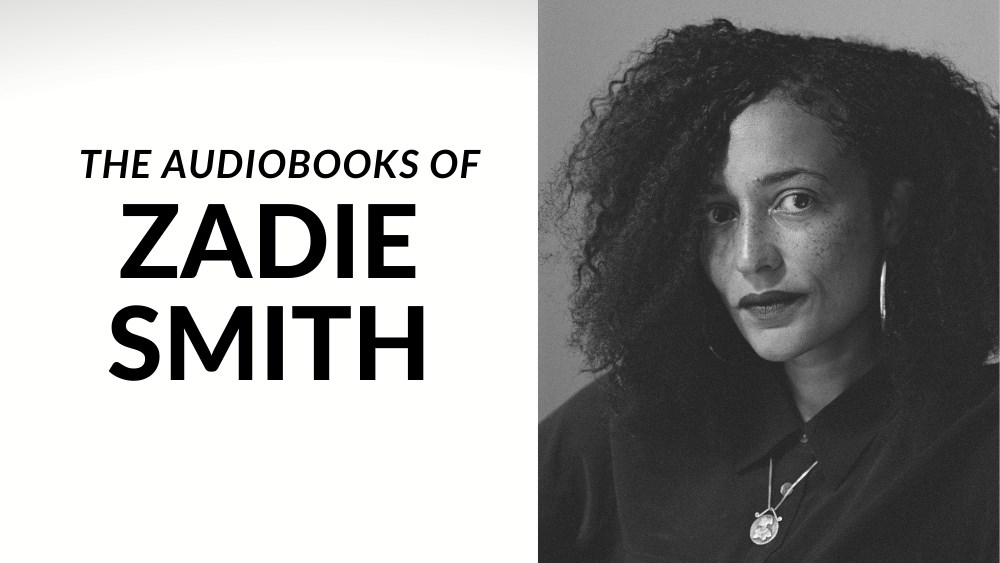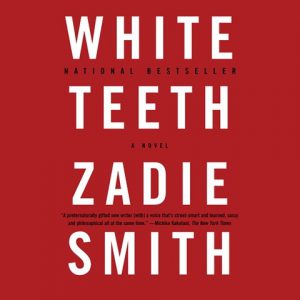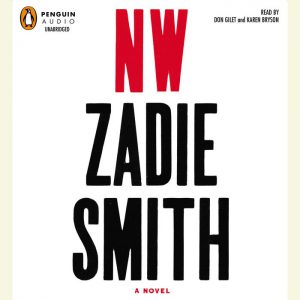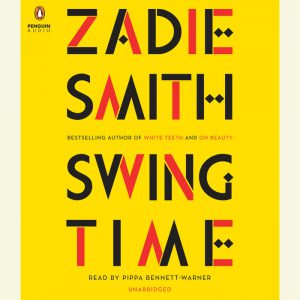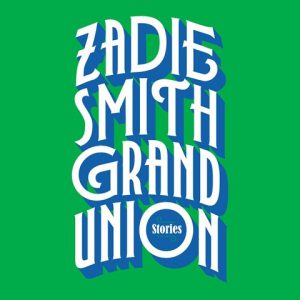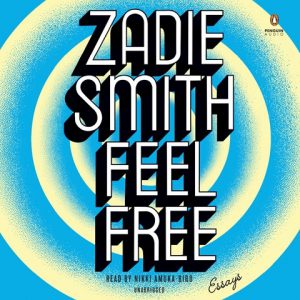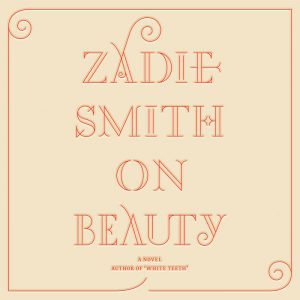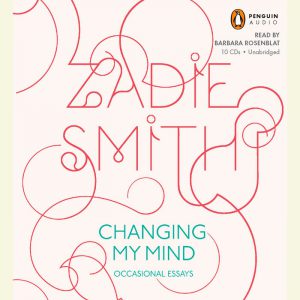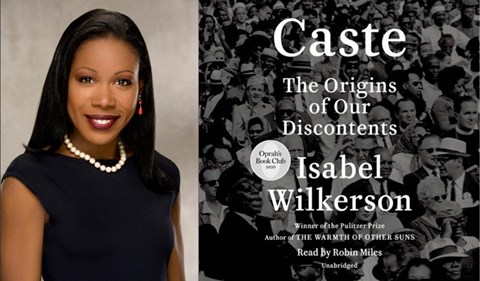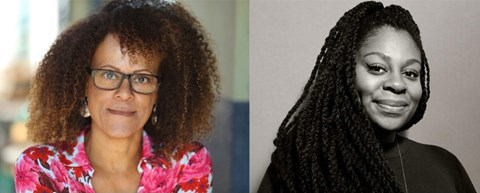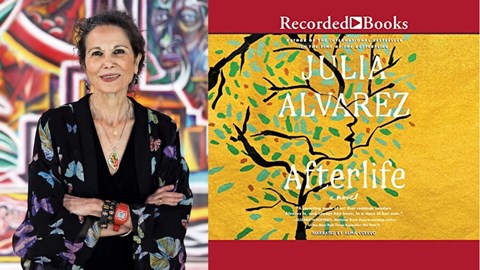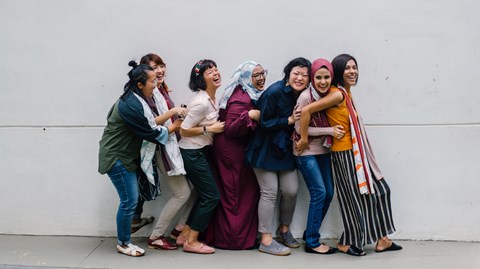English author Zadie Smith’s luminous new collection of essays, INTIMATIONS, should be kept close to hand so that you can reach for it when you need to reflect, find comfort, or be slapped kindly upside the head. Begun at the start of the pandemic and finished just after the killing of George Floyd, the six short pieces are loosely set in New York City, where Smith is a tenured professor of fiction at New York University, and center on life during “our global humbling.”
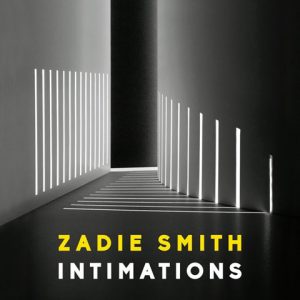 They are wide-ranging and broad-minded, mixing personal reflections, such as, “When made with love, there is no great difference between novels and banana bread,” with political commentary, “People thank God for ‘essential’ workers they once considered lowly and who not so long ago they despised for wanting fifteen bucks an hour.” She shares thoughts of Angela Davis and Marcus Aurelius; encounters with street people and macchiato drinkers. The essays end with a list of “Debts and Lessons,” which include: “From Kibibi—How to dance. How to make yourself up from scraps—from whatever is available. From Virginia Woolf—To replace that missing layer of skin with Language. For as long as that works. From Kellas—To consider yourself lucky, even in situations which almost anybody else would consider extremely difficult and unfair.”
They are wide-ranging and broad-minded, mixing personal reflections, such as, “When made with love, there is no great difference between novels and banana bread,” with political commentary, “People thank God for ‘essential’ workers they once considered lowly and who not so long ago they despised for wanting fifteen bucks an hour.” She shares thoughts of Angela Davis and Marcus Aurelius; encounters with street people and macchiato drinkers. The essays end with a list of “Debts and Lessons,” which include: “From Kibibi—How to dance. How to make yourself up from scraps—from whatever is available. From Virginia Woolf—To replace that missing layer of skin with Language. For as long as that works. From Kellas—To consider yourself lucky, even in situations which almost anybody else would consider extremely difficult and unfair.”
Smith has chosen to narrate the essays herself, which is a boon for listeners. Low-pitched, London-born, with an enticing hint of gravel in her voice, Smith performs with verve and clarity. We hear the rhythm of a poet at a slam and the transmutation of an actor on the stage. We meet all the folks she encounters, be they Black or white, American or foreign born: The man in the park whose sign reads I AM A SELF HATING ASIAN. LET’S TALK! Myron—legless, homeless, and Black, whose favorite corner sermon is about the “craziness of white folks—Just wash your damn hands! Ain’t complicated. They out here acting like it’s THE END OF THE WORLD. I survived worse. I survived WAY worse than this shit.” Barbara—elderly and white, who comments, as those with options leave New York City to the pandemic—“Thing is, we’re a community, and we’ve got each other’s back. Nothing to be afraid of—we’ll get through this, all of us, together.”
The daughter of a Jamaican mother and an English father, Zadie Smith shot to fame in 2000 with her first novel, WHITE TEETH, which was written during her final year at King’s College, Cambridge. Her work has been longlisted for the Man Booker Prize and won many awards, including the Whitbread First Novel Award, the James Tait Black Memorial Prize, the Betty Trask Award, the Orange Prize for Fiction, and the National Book Critics Circle Award. Smith is the author of five novels, three essay collections, and one collection of short stories.
Lenny Henry, Pippa Bennett-Warner, Ray Panthaki, and Sagar Arya work together to create a juxtaposition of immigrant lives in this multigenerational tale of two WWII veterans and unlikely friends, which has been called “postmodern Dickens.”
Karen Bryson and Don Gilet do an excellent job narrating this involving novel about the lives of two women and one man born on the Caldwell housing estate in Northwest London.
Pippa Bennett-Warner’s spot-on narration won an Earphones Award for this exceptional novel of tenuous friendships, racial and gender politics, and the complexity of family relationships.
This collection of short stories, some of which were originally published in The New Yorker, vividly explores people’s complex lives. Smith reads the first and last of the stories, and Doc Brown the rest, all with an entertaining ebb and flow of energy.
Nikki Amuka-Bird’s mellow British voice is a perfect guide to Smith’s far-ranging essays on everything from music, art, and dance to technology, politics, and love.
This virtuoso reimagining of E.M. Forster’s HOWARD’S END revolves around a British academic teaching college in Boston, his African-American wife, and their three headstrong teenaged children. Peter Francis James ably gives voice to the cornucopia of characters including London intellectuals and street toughs, Haitians, African immigrants, New Englanders, Southerners, and urban hip-hop poets.
Barbara Rosenblat won an Earphones Award for her entrancing narration of Smith’s exploration of language and literature, including Barack Obama’s speaking style, Zora Neale Hurston’s THEIR EYES WERE WATCHING GOD, George Eliot’s MIDDLEMARCH, and E.M. Forster’s HOWARDS END.
Zadie Smith photo by Dominique Nabokov


